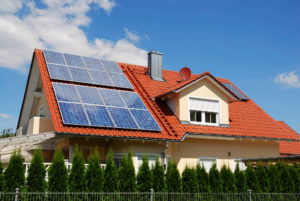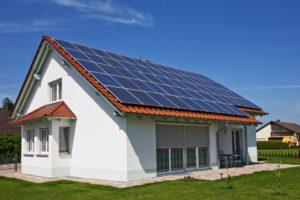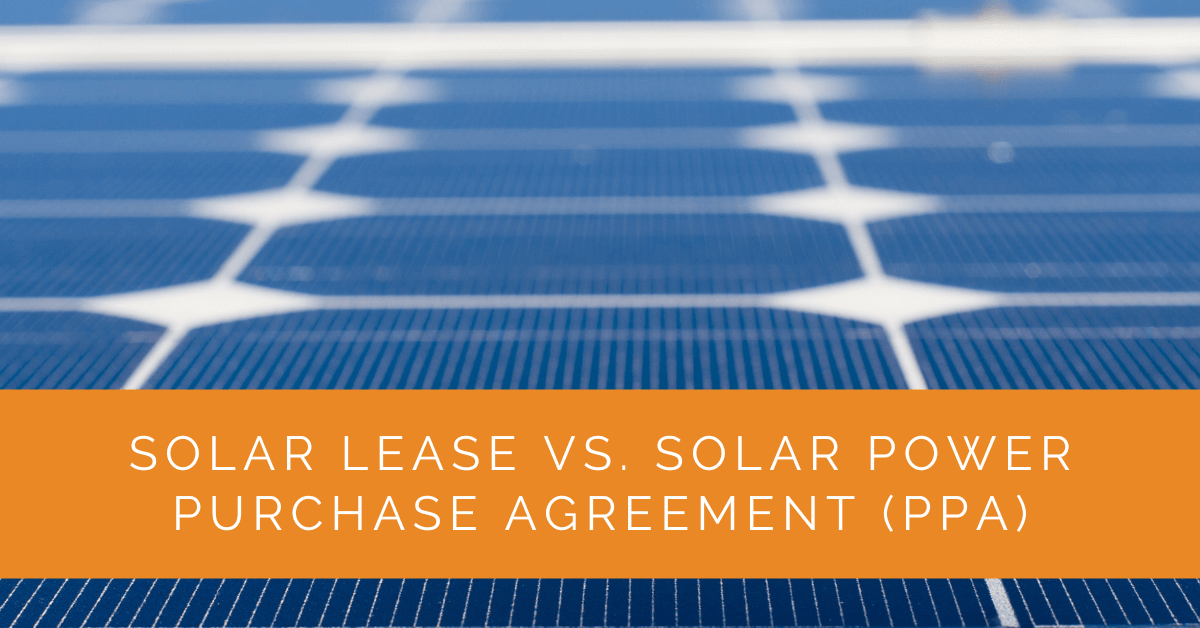Solar power has emerged as an increasingly popular choice for homeowners and businesses in pursuing sustainable energy solutions. As the solar industry continues to grow, various financing options have become available to make the transition to solar more accessible and affordable. Solar leases and Solar Power Purchase Agreements (PPAs) are two prominent options. In this comprehensive guide, we will explore the intricacies of each financing method, helping you decide on the best approach for your solar energy system.
Contents
- 1 Key Takeaways
- 2 Understanding Solar Leases and Solar PPAs
- 3 Lease vs. PPA: How They Work
- 4 Evaluating Your Solar Options
- 5 Going Solar: Other Financing Alternatives
- 6 Case Study: Choosing Between Solar Lease and Solar PPA for Residential Solar Installation
- 7 Expert Insights From Our Solar Panel Installers About Solar Lease vs. Solar Power Purchase Agreement (PPA)
- 8 Experience Solar Excellence with Us!
- 9 Conclusion
Key Takeaways
- Understanding the differences between a solar lease and a Solar Power Purchase Agreement (PPA) is essential in making an informed decision about financing your solar panel system.
- Each financing option has unique advantages and drawbacks, with solar leases offering affordability and fixed payments, while Solar PPAs provide price stability and no upfront costs.
- Assess your financial goals, budget, and long-term plans to determine which financing method aligns best with your vision for a greener, more sustainable energy future.
Understanding Solar Leases and Solar PPAs
What is a Solar Lease?
A solar lease financing arrangement enables homeowners or businesses to access solar power without significant upfront costs. The solar company owns and maintains the solar panel system in this arrangement. At the same time, the property owner pays a fixed monthly lease amount for the solar energy produced.
With a solar lease, customers can enjoy the benefits of clean energy without the financial burden of outright system ownership. This leasing option has become increasingly popular due to its accessibility and simplicity, making solar energy a viable choice for a wider audience.
What is a Solar Power Purchase Agreement (PPA)?
A Solar Power Purchase Agreement (PPA) presents an alternative financing model where homeowners contract with a solar company to purchase the solar power generated by the installed system. In this setup, the solar company assumes ownership of the solar panels and handles all aspects of system maintenance.
Under a Solar PPA, property owners are not required to invest in the solar panel system, and they commit to buying the electricity produced at an agreed-upon rate. This provides a predictable and often lower cost per kilowatt-hour (kWh) compared to traditional utility rates, offering considerable savings over time.

Lease vs. PPA: How They Work
Solar Lease Explained
A solar lease is an appealing option for those seeking to adopt solar energy without making a large initial investment. With this financing model, property owners lease the solar panel system from a solar company, which maintains ownership and takes care of any necessary repairs and upkeep.
The lease agreement typically spans a duration of 15 to 25 years. During this period, the property owner pays the solar company a fixed monthly lease amount. The predictable nature of these fixed payments shields customers from the uncertainty of fluctuating utility rates, which can lead to significant savings over time.
Prospective customers interested in solar leases should carefully review the lease terms, including the monthly payment amount and any potential escalation clauses that may impact future payments. Additionally, understanding the terms related to system maintenance and performance guarantees is crucial to ensure a seamless solar experience.
Solar PPA Explained
A Solar Power Purchase Agreement (PPA) offers another avenue for property owners to embrace solar energy without needing upfront capital. Under a PPA arrangement, the solar company takes on the responsibility of owning and maintaining the solar panel system.
In contrast to a solar lease, where customers pay a fixed lease amount, a Solar PPA is based on purchasing the electricity generated by the solar panels at an agreed-upon rate per kilowatt-hour (kWh). This pricing model provides price stability and allows property owners to enjoy the benefits of renewable energy without the complexities of system management.
While a Solar PPA offers a cost-effective and environmentally friendly approach, property owners should thoroughly review the terms and conditions of the agreement. Understanding potential escalations in the PPA rate and the contract duration is essential to make an informed decision aligning with their long-term energy goals.
Differences Between a Solar Lease and a Solar PPA
Solar leases and Solar PPAs offer viable options for adopting solar energy, but they have distinct characteristics catering to different preferences and financial situations. Understanding these differences is crucial for property owners to make an educated choice that best suits their needs.
- Ownership: In a solar lease, the solar company maintains ownership of the solar panel system, while a Solar PPA involves the solar company owning the system on behalf of the property owner.
- Payment Structure: Solar leases are characterized by fixed monthly lease payments, while Solar PPAs involve purchasing the solar energy produced at a predetermined rate per kWh.
- Financial Impact: A solar lease typically requires a lower upfront payment than a Solar PPA, making it an attractive option for those seeking to minimize initial costs.
- Maintenance Responsibility: With a solar lease, the solar company is responsible for system maintenance, whereas a Solar PPA includes maintenance services as part of the agreement.
- System Performance: In both cases, the solar company ensures the optimal performance and efficiency of the solar panel system throughout the lease or PPA term.

Evaluating Your Solar Options
Factors to Consider Before Making a Decision
The decision to choose between a solar lease and a Solar PPA hinges on various factors unique to each property owner’s situation. Before committing, consider the following aspects:
- Financial Goals: Evaluate your long-term financial objectives and how each financing option aligns with those goals. Determine whether owning the system or benefiting from fixed payments is a priority.
- Budget: Carefully assess your budget for upfront costs and ongoing expenses. Consider the impact of each financing option on your financial stability.
- Ownership Benefits: Determine if the potential benefits of solar ownership, such as tax credits and rebates, outweigh the convenience of not owning the system.
- Long-Term Plans: Analyze your plans for the property and how a long-term lease or PPA agreement may impact your ability to make changes in the future, such as selling the property.
Solar Lease or Solar PPA: Which is Right for You?
The choice between a solar lease and a Solar Power Purchase Agreement ultimately depends on your needs, preferences, and financial circumstances. Both options present unique advantages and considerations, so it is crucial to conduct a thorough evaluation before committing. By carefully weighing the pros and cons and aligning the chosen financing method with your energy goals, you can confidently embark on your journey toward a sustainable and eco-friendly future.
Going Solar: Other Financing Alternatives
Solar Loans: Understanding the Basics
Solar loans provide an attractive alternative for those seeking ownership benefits and long-term savings without a significant upfront investment. With solar loans, property owners secure financing to purchase the solar panel system outright or in partnership with a lender.
Solar loans offer various terms, interest rates, and payment options, allowing property owners to select a loan that best suits their financial capacity and goals. By investing in solar ownership through loans, customers can take advantage of federal and state tax incentives and enjoy the long-term benefits of free, renewable solar energy.
Buying Solar Panels Outright: Is it the Right Choice?
Buying a solar panel system offers unparalleled benefits for property owners with financial stability and a commitment to long-term solar investment. Property owners become eligible for various incentives by purchasing the system, including federal tax credits and state rebates.
Owning the solar panel system outright also provides full control over the installation process and equipment choices, allowing homeowners to customize the system according to their specific needs and preferences. This ownership model guarantees maximum returns on investment and reduces dependency on external financing entities.
Case Study: Choosing Between Solar Lease and Solar PPA for Residential Solar Installation
Background
At Solar Panels Network USA, we frequently assist homeowners in selecting the best financing option for their solar energy systems. This case study highlights how we helped a family decide between a solar lease and a Solar Power Purchase Agreement (PPA), ensuring they made an informed decision that suited their financial goals and energy needs.
Project Overview
Our client, a family of four living in a suburban neighborhood, expressed interest in transitioning to solar energy to reduce their carbon footprint and lower their electricity bills. They were particularly concerned about the upfront costs and long-term financial implications of adopting solar energy. After an initial consultation, we recommended exploring both solar leases and Solar PPAs to determine the best fit for their situation.
Implementation
Initial Consultation and Assessment
We began with a detailed assessment of the family’s energy consumption patterns and financial goals. By analyzing their electricity bills and understanding their budget constraints, we identified the potential savings they could achieve with solar energy. We also evaluated their property to determine the optimal placement for solar panels, ensuring maximum efficiency and energy production.
Exploring Financing Options
We provided the family with comprehensive information about solar leases and Solar PPAs, explaining the key differences and benefits of each option:
- Solar Lease: We highlighted the fixed monthly payments, which would offer predictability and shield them from fluctuating utility rates. The lease agreement included system maintenance and repairs, ensuring hassle-free operation.
- Solar PPA: We discussed how the family would pay only for the electricity generated by the system, often at a lower rate than their current utility price. This option required no upfront costs and provided immediate savings on their electricity bills.
Decision-Making Process
To aid in their decision, we conducted a side-by-side comparison of the financial implications of both options over the agreement term. This included:
- Projected monthly payments for the solar lease versus the per-kWh rate for the PPA.
- Potential savings over 20 years for each option.
- The impact of potential utility rate increases on their overall savings.
Results
Choosing the Best Option
After careful consideration and discussions with our team, the family chose the Solar PPA. They were attracted to the immediate savings on their electricity bills and the flexibility of paying only for the energy produced. The PPA’s pricing stability and lack of upfront costs aligned well with their financial goals and provided them with peace of mind regarding their long-term energy expenses.
Installation and Performance
We proceeded with the installation of a high-efficiency solar panel system, ensuring optimal placement for maximum sunlight exposure. The system was integrated with a state-of-the-art monitoring solution, allowing the family to track their energy production and savings in real-time.
The solar panels performed exceptionally well, consistently meeting the family’s energy needs and significantly reducing their reliance on grid electricity. The predictable monthly savings allowed them to allocate more funds towards other household expenses and investments.
Summary
This case study illustrates the importance of evaluating both solar leases and Solar PPAs to make an informed decision that aligns with financial goals and energy needs. By carefully assessing their options and understanding the long-term benefits, the family successfully transitioned to solar energy, achieving substantial cost savings and contributing to a more sustainable future.
Expert Insights From Our Solar Panel Installers About Solar Lease vs. Solar Power Purchase Agreement (PPA)
A solar lease is a great option for homeowners who want to go solar without the high upfront costs. With fixed monthly payments, it provides a predictable way to save on energy bills while enjoying the benefits of clean energy.
Senior Solar Installer
Solar PPAs are ideal for those looking to lock in a stable electricity rate. By paying only for the power generated, homeowners can avoid the complexities of system ownership and still enjoy significant savings.
Lead Solar Technician
When deciding between a solar lease and a PPA, it’s essential to consider your long-term goals and financial situation. Both options offer unique benefits, but your choice should align with your specific needs and plans for the future.
Solar Project Manager
Experience Solar Excellence with Us!
Trust in Solar Panels Network USA, where our seasoned experts deliver top-quality solar solutions for homes and businesses nationwide. With a legacy of countless successful installations and a commitment to sustainable energy, we’re your reliable partner in the solar journey. Ready for a brighter, eco-friendly future? Call us now at (855) 427-0058 and harness the power of the sun!
Conclusion
As the world increasingly embraces sustainable energy solutions, choosing between a solar lease and a Solar Power Purchase Agreement (PPA) becomes increasingly more significant. Understanding the nuances of each financing option empowers property owners to make well-informed decisions that align with their unique circumstances and long-term energy goals.
Solar leases offer accessibility, affordability, and professional maintenance, making them an appealing option for those seeking to adopt solar energy with minimal upfront costs. On the other hand, Solar PPAs provide price stability, immediate access to clean energy, and the convenience of having the solar company manage the system entirely.
Additionally, property owners can explore alternative financing avenues like solar loans or outright system ownership, each presenting its own set of advantages and opportunities for financial savings.
About the Author
Solar Panels Network USA stands at the forefront of solar energy solutions, driven by a team of seasoned solar engineers and energy consultants. With over decades of experience in delivering high-quality solar installations and maintenance, we are committed to promoting sustainable energy through customer-centric, tailored solutions. Our articles reflect this commitment, crafted collaboratively by experts to provide accurate, up-to-date insights into solar technology, ensuring our readers are well-informed and empowered in their solar energy decisions.

